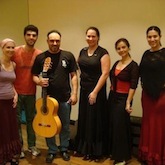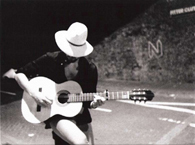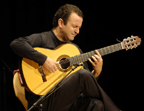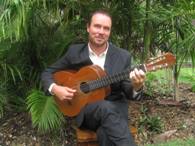Welcome to one of the most active flamenco sites on the Internet. Guests can read most posts but if you want to participate click here to register.
This site is dedicated to the memory of Paco de Lucía, Ron Mitchell, Guy Williams, Linda Elvira, Philip John Lee, Craig Eros, Ben Woods, David Serva and Tom Blackshear who went ahead of us.
We receive 12,200 visitors a month from 200 countries and 1.7 million page impressions a year. To advertise on this site please contact us.
|

|
|
In Defense of Theory
|
You are logged in as Guest
|
|
Users viewing this topic: none
|
|
Login  | |
|

   
Kevin
Posts: 294
Joined: Sep. 7 2008

|
 In Defense of Theory In Defense of Theory
|
|
|
So I have 8 lessons from beginner to advanced semi-prepared, but I thought I would take a brief moment to defend theory against people who say you do not need it.
Actually, I agree with some of the assessments on the foro. You do not NEED it. However, it can be very helpful. It took Paco de Lucia 55 years to intuit a bVI-I cadence. You can learn that right away. That does not mean you are going to compose like Paco, but you also do not need to spend 55 years searching for that sound.
Theory ALWAYS comes after practice but you can use it as a tool in your compositional toolpouch. Coupled with an exploratory spirit, theor(ies) are great tools.
At my site you will get things that you won't get ANYWHERE else, unless people imitate my format. The lessons are meant to be practical right off the bat with an understanding of music theory as a byproduct.
1) You will get PDFs (3-4 pages) that give you the music and some explanation of the material
2) Video. Video will include SOME of the material from the PDFs but also original so that you get more info.
Sometimes I will include audio.
3) Blog. In the blogs I will be discussing many issues not covered by PDF/Video/Audio. For example, I have included the first page of the PDF for a lesson on the Andalusian cadence and the descending tetrachord. The descending tetrachord can be traced back to the Baroque guitar treatises (1586-1674). It can also be found in the Lament bass of classical composers.
4) Don't forget the surprises
There is this tendency to think of "classical" and "jazz" and "flamenco" as all separate musics that don't have anything to do with eachother. That is just not the case. Harmony emerged out of the Western classical tradition and flamenco and jazz borrow from it heavily, then do their own thing with it. It is therefore very appropriate to learn common practice theory (though, not necessary). In the blogs I will address the socio-historical significance of cultural contact.
The point of ALL of it is to get you composing and for me to develop my ideas both theoretically and compositionally NOW THAT I AM MOSTLY FINISHED WITH SCHOOL.
The PDF included here could be called "501 chords in A." More like 128, 32 for each chord in the Andalusian Cadence in La - Dm-C-Bb-A.
This lesson in itself may not seem like much because it is not. Complimented by the video and blog (and other lessons like chord construction), however, you might find just what you are looking for.
 Attachment (1) Attachment (1)
|
|
|
|
REPORT THIS POST AS INAPPROPRIATE |
Date Jun. 22 2012 23:03:44
 |
|

   
BarkellWH
Posts: 3459
Joined: Jul. 12 2009
From: Washington, DC

|
 RE: In Defense of Theory (in reply to Guest) RE: In Defense of Theory (in reply to Guest)
|
|
|
I have to agree with you, Nealf. He creates a thread entitled, "In Defense of Theory" and then uses it as a means to promote his website. He is employing the classic "bait and switch" tactic: First he introduces what appears to be an interesting topic, and then he uses it to advertise his website. Even discounting his milking the Foro for information and ideas for his thesis and subsequent deletion of his posts (no doubt to avoid potential problems with his thesis/dissertation committee), this tactic alone marks him as a classic "huckster." a snake oil salesman. The one word that comes to mind is: "Cheesy."
Cheers,
Bill
_____________________________
And the end of the fight is a tombstone white,
With the name of the late deceased,
And the epitaph drear, "A fool lies here,
Who tried to hustle the East."
--Rudyard Kipling
|
|
|
|
REPORT THIS POST AS INAPPROPRIATE |
Date Jun. 24 2012 1:10:42
 |
|
Guest

|
 RE: In Defense of Theory (in reply to KMMI77) RE: In Defense of Theory (in reply to KMMI77)
|
|
|
A7aug...
is it just me or are some of the chord annotations in the Pdf incorrect?
A7b9sus2?...sus 4 by the notes
Bb no 5th?...no reference to the root tone...seems odd when describing the Cadence...more of Dminor chord perhaps..?
Bb aug 6th is it not just a Bb9 chord? [with a raised 11th as a pedal tone...]
thanks in advance...
_____________________________
|
|
|
|
REPORT THIS POST AS INAPPROPRIATE |
Date Jun. 24 2012 2:14:26
 |
|
Guest

|
 RE: In Defense of Theory (in reply to Kevin) RE: In Defense of Theory (in reply to Kevin)
|
|
|
quote:
Bb7 and Bbaug6 are the same chord spelled enharmonically. The aug6 (G#) wants to go to A in the A chord. In a TRUE Bb7 chord, the Ab will want to move down to G either as the seventh in an A chord or the third in Eb.
thanks Kevin....makes sense..apologies for the incorrect file extension...
so
as a Phrygian mode in relation to flamenco and Not western classical or jazz theory is it more plausable to think of A phyrgian [and its derived harmony for use as a composition tool] as
A Bb C C# D E F G G# A ? understanding i may have the enharmonics wrong and figure D# could be added in there...
or is it still using the church modes as a reference point?
guess this question comes about as i dont or rarely hear flamenco as a modal music...[ in a church mode sense anyway...]
guess in essence the relationship between a C7 type chord and an A7 chord in a cadence seems to imply two types of modes at play...
_____________________________
|
|
|
|
REPORT THIS POST AS INAPPROPRIATE |
Date Jun. 24 2012 2:49:13
 |
|

   
Ricardo
Posts: 14828
Joined: Dec. 14 2004
From: Washington DC

|
 RE: In Defense of Theory (in reply to Guest) RE: In Defense of Theory (in reply to Guest)
|
|
|
quote:
as a Phrygian mode in relation to flamenco and Not western classical or jazz theory is it more plausable to think of A phyrgian [and its derived harmony for use as a composition tool] as
A Bb C C# D E F G G# A ? understanding i may have the enharmonics wrong and figure D# could be added in there...
or is it still using the church modes as a reference point?
Sorry to butt in...this next info comes from Ricardo himself as per old archived posts. Simple answer is not exactly. Better to think of circle of 5ths (not that Zodiac BS we saw on Facebook, the REAL circle of 5ths LOL). So you have A major, 3 #, A minor, no Sharps or Flats, and A phyrigian 1 b. Like wise you have F major, D minor, and A phyrgian flamenco all sharing the same spot on the wheel. So in flamenco it is more than simply a scale we have but literally a "phrygian key". Inside you can claim to have the "andalusian cadence" etc, but all you really are dealing with is the circle of 5th related chord progression the same way you have relative major or minor. In that sense you actually are wasting time trying to claim special harmonies as per a phrygian chord scale...you have the KEY of A phyrigian with the ENTIRE chromatic scale fair game as any major or minor key has at it's disposal to use melodically, or for modulation or implied harmonies etc. The concept of "key" vs "mode" is important.
More specifically we borrow the same use of accidentals as would occur in ANY minor key since baroque times...with the expressed understanding relative major or minor tonics are avoided AT LEAST RHYTHMICALLY so we can experience the phrygian tonic instead. So we share F major and D minor chords and scales, but come to rest always on A as tonic when dealing with the "phrygian key" of A.
THe augmented 6 thing is really more borrowed from major or minor tonal harmony practices, and used as a device SOMETIMES but for sure not always, to make an even stronger resolution to phrygian tonic....sort of like doing a half cadence in Dm (Bbaug6->A7) but the RHYTHM or phrasing allows us to accept THAT as the final resting point, so in fact a FULL cadence. I want to stress the importance of rhythm and phrasing which is not normally taken as so important a factor in classical theory analysis of tonal harmony, but makes the whole difference in flamenco.
IMO.
PS if anyone arrives at a similar conclusion in a paper, article, dissertation, facebook post, website lesson, or other, it is only LOGICAL. I would hope that anyone who does will understand that he or she is NOT the first person on earth to have noticed and understood such a thing.
_____________________________
CD's and transcriptions available here:
www.ricardomarlow.com
|
|
|
|
REPORT THIS POST AS INAPPROPRIATE |
Date Jun. 24 2012 7:16:13
 |
|

   
Kevin
Posts: 294
Joined: Sep. 7 2008

|
 RE: In Defense of Theory (in reply to Ricardo) RE: In Defense of Theory (in reply to Ricardo)
|
|
|
quote:
PS if anyone arrives at a similar conclusion in a paper, article, dissertation, facebook post, website lesson, or other, it is only LOGICAL. I would hope that anyone who does will understand that he or she is NOT the first person on earth to have noticed and understood such a thing.
Totally agreed. That cuts both ways but unfortunately your fans (no offense to you or them) seem to think that you are the only one that has come to those conclusions. At any rate, those ideas have not been published. Lola Fernandez and Manuel Granados are the only two to have offered decent flamenco theories. Sanlucar goes way out.
As usual, where we differ is in matters of detail. As an example, the circle of fifths was not developed fully until equal temperament became possible. ET was actually a push for being able to play in all keys. Flamenco came out of the Lament tradition in the mediterranean. The seguiriya and its predecessors are laments and are the only forms to actually follow the Lament bass as found in early guitar as well as Italian Opera. It is MY OPINION that the lament bass served as the foundation for the seguiriya but then flamencos ran with it. It is ONLY in retrospect that we can say the circle of fifths works within the Andalusian cadence. I have analyzed all of the early recordings and there is nothing that even hints at the Cycle. Early flamenco is at the crossroads of modality and tonality though decidedly leaning towards tonality. Throughout the century more and more "classical" material and then jazz (directly or indirectly) were APPROPRIATED by flamencos and used in their own way. In that way, it really came to resemble tonality.
quote:
So in flamenco it is more than simply a scale we have but literally a "phrygian key". Inside you can claim to have the "andalusian cadence" etc, but all you really are dealing with is the circle of 5th related chord progression the same way you have relative major or minor. In that sense you actually are wasting time trying to claim special harmonies as per a phrygian chord scale...you have the KEY of A phyrigian with the ENTIRE chromatic scale fair game as any major or minor key has at it's disposal to use melodically, or for modulation or implied harmonies etc. The concept of "key" vs "mode" is important.
Actually, I am SIMPLIFYING. Any composition can be thought of as creative expansions of V-I (major), V-i (minor), or II-I (Phrygian). You have to learn how to compose a diatonic melody like Twinkle, Twinkle first. Then you learn how to color it. ONLY after simple melodies should you learn the "ENTIRE chromatic scale" and learn in context. I have been transcribing Paco and it is amazing how much he fits into the classical mold with a few jazz harmonies thrown in.
quote:
More specifically we borrow the same use of accidentals as would occur in ANY minor key since baroque times...with the expressed understanding relative major or minor tonics are avoided AT LEAST RHYTHMICALLY so we can experience the phrygian tonic instead. So we share F major and D minor chords and scales, but come to rest always on A as tonic when dealing with the "phrygian key" of A.
I assume you are responding to AlVal. I would add that a true understanding of cadences is helpful; playing with expectation depending on the degree of finality of the cadence. An example I gave is Paco's use of bVI-I/VI goes to II-I or C#-F, Bb-A. He could have worked his way down from C# to C then Bb and A. Instead he deceptively cadences on VI(F) before using the remate as a vehicle for bringing the falseta to a full cadence (we have to clarify that a full cadence is whichever cadence is considered to be the most suggestive of finality according to the key Maj, min, or Ph. Any full cadence in any key would be considered a half cadence in any other and vice-versa).
I have a whole schtick on cadences and Douglas Green's book is my point of departure. You have to modify the theories to better explain flamenco but I agree that RHYTHM (and harmony since they both contribute to cadence) needs to be better elaborated.
Cadence goes with FORM and that will be something else I cover (Oooooops, SHAMELESS PLUG  ). ).
At any rate, although I have always appreciated your posts, Now if I am going to post anything I guess I will have to say THIS IS HOW I SEE IT and document it so no one can say my ideas are not original, if not in content, then in form of content and how I arrived at them.
|
|
|
|
REPORT THIS POST AS INAPPROPRIATE |
Date Jun. 24 2012 7:36:33
 |
|
Guest

|
 RE: In Defense of Theory (in reply to Ricardo) RE: In Defense of Theory (in reply to Ricardo)
|
|
|
Thank you for the response Ricardo and Kevin
quote:
Zodiac BS
agree with you on the out of tuneness on that album...the chart was pretty mixed up i believe the original only used 'pedal tones' not keys...anyway a system for someone else to work out and believe in...
this topic does feel familiar...
Appresciate your response and thanks for the bigger picture
understand the points given...logical..
Can see a movement in fourths in apects of flamenco..in relation to the cycle
and the idea of the entire chromatic scale, harmonic rhythm, melodic phrasing and 'key' of phrygian is clear.....etc
personally have'nt seen much said generally on flamenco theory [except in terms of structure in relation to baile and cante] and am beginning to understand why..but respect the fact others may have thought deeply on this...
@kevin thanks for reponse. ET and Lament are out of my scope of reference so really need time to assimilate the info ..the earlier points were helpful...
when i began learning flamenco guitar i would often be playing wth experienced players and needed to find ways to complement what they were doing with chord inversions and harmonized melodic lines as opposed to playing the same as them...had no piont of reference other than my previous knowledge, materials like keys and modes etc really helped to accelerate my learning...over time it has become alot more intuitive...personally just looking for a 'frame' of reference when it comes to tonality so i can communicate this to other musicians or students...and just play the guitar..
quote:
emotional or intuitive repsonses
environment seems a large part as well...
quote:
uneducated musicians (like Flamencos)
degrees from the school of life....but that's a whole different issue...cultural education vs Institutionalized education...
_____________________________
|
|
|
|
REPORT THIS POST AS INAPPROPRIATE |
Date Jun. 24 2012 12:27:18
 |
|

   
BarkellWH
Posts: 3459
Joined: Jul. 12 2009
From: Washington, DC

|
 RE: In Defense of Theory (in reply to Kevin) RE: In Defense of Theory (in reply to Kevin)
|
|
|
quote:
with all due respect, you can ignore me
Of course, but it was your "bait and switch" hucksterism that pulled me in to reading your initial post in the first place. A thread entitled "In Defense of Theory" has interesting possibilities. Imagine my surprise, upon reading your initial post, to find that it was just a vehicle for flogging your new website and lessons. No one begrudges you opening a website and offering lessons. What is unprofessional and, yes, cheesy, is using a thread you have entitled "In Defense of Theory" as camouflage for advertising.
Cheers,
Bill
_____________________________
And the end of the fight is a tombstone white,
With the name of the late deceased,
And the epitaph drear, "A fool lies here,
Who tried to hustle the East."
--Rudyard Kipling
|
|
|
|
REPORT THIS POST AS INAPPROPRIATE |
Date Jun. 24 2012 12:42:52
 |
|
 New Messages New Messages |
 No New Messages No New Messages |
 Hot Topic w/ New Messages Hot Topic w/ New Messages |
 Hot Topic w/o New Messages Hot Topic w/o New Messages |
 Locked w/ New Messages Locked w/ New Messages |
 Locked w/o New Messages Locked w/o New Messages |
|
 Post New Thread
Post New Thread
 Reply to Message
Reply to Message
 Post New Poll
Post New Poll
 Submit Vote
Submit Vote
 Delete My Own Post
Delete My Own Post
 Delete My Own Thread
Delete My Own Thread
 Rate Posts
Rate Posts
|
|
|
Forum Software powered by ASP Playground Advanced Edition 2.0.5
Copyright © 2000 - 2003 ASPPlayground.NET |
0.109375 secs.
|


 Printable Version
Printable Version












 ).
).  And no one ever claimed such a thing anyway. And odd you would say such a thing in THIS thread, as I just brought it up now to reply to the question of phrygian scale/harmony. Or do you feel that the "Mining foro" type comments above are related to my personal conclusions on this theory stuff? I seriously doubt that's what they were refering to... don't be paranoid. Other foro members are probably just peeved you are not engaging in "open" dialogue anymore as per your deleted posts....dont' call em "my fans" please, even if they are as it implies anyone who might agree with me is doing so blindly. This is still an open forum even if you want to just advertise stuff.
And no one ever claimed such a thing anyway. And odd you would say such a thing in THIS thread, as I just brought it up now to reply to the question of phrygian scale/harmony. Or do you feel that the "Mining foro" type comments above are related to my personal conclusions on this theory stuff? I seriously doubt that's what they were refering to... don't be paranoid. Other foro members are probably just peeved you are not engaging in "open" dialogue anymore as per your deleted posts....dont' call em "my fans" please, even if they are as it implies anyone who might agree with me is doing so blindly. This is still an open forum even if you want to just advertise stuff.  ) so I could really put something together.
) so I could really put something together. 


 New Messages
New Messages No New Messages
No New Messages Hot Topic w/ New Messages
Hot Topic w/ New Messages Hot Topic w/o New Messages
Hot Topic w/o New Messages Locked w/ New Messages
Locked w/ New Messages Locked w/o New Messages
Locked w/o New Messages Post New Thread
Post New Thread